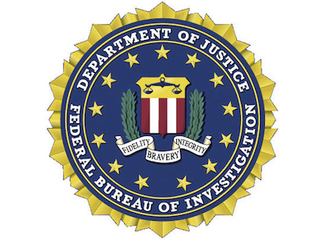FBI's Warrantless Searches Now Include Fake Cell Towers
Naturally, the FBI insists this is completely legal.


The FBI has made use of a novel technique to locate an criminal suspect that may constitute a violation of the American Constitution. At least, that's the charge made by Daniel David Rigmaiden, alleged leader of an identity theft ring who was located by using a fake cell phone tower to track down an aircard he was using. The fake tower - a device called Stingray - tricks wireless devices to connect to it by spoofing legitimate cell phone towers, attracting phone signals before passing them back to legitimate towers to evade detection. Stingray is then able to collect information like unique ID numbers and location data. This allows for a much more precise location fix than is obtainable using legitimate cellphone towers.
The FBI has previously insisted that they don't need a warrant to conduct utilize the technology. There may be some merit to that claim, considering the brazenly irresponsible granting of retroactive immunity to previous warrantless wiretapping campaigns. But they are now changing their argument somewhat, surprisingly claiming in Rigmaiden's case that Stingray's use did indeed constitute a lawful search. The use of Stingray, so they claim, was actually covered under a warrant they already obtained to get location, ID information and traffic data from existing Verizon towers. This may be, as Wired notes, an end run to avoid a deeper look into Stingray technology that may cause it to come under serious legal scrutiny.
The FBI claims the device is designed only to grab information like "dialing, routing and address" data as part of a suspect's routine communication. However, they can't use it to precision-target, which means Stingray is also collecting data on innocent people. Though the FBI is required by Internal Policy to discard such irrelevant data, the American government's official position is that, similar to someone's trash, the 4th Amendment's expectation of privacy doesn't apply to data gathered from stray wireless device signals. Though the argument is, to put it mildly, logically suspect, it has some basis in unfortunate legal precedent. In January, 2011, the California Supreme Court ruled, shockingly, that police may search the contents of an arrested person's cell phone. In September, the California legislature passed a law overturning that ruling, but Governor Jerry Brown vetoed that law.
Wired has posted the full affidavit in PDF form, and it's worth a read to anyone interested in the latest attempts to finesse certain constitutional principles.
Sign up to get the BEST of Tom’s Guide direct to your inbox.
Upgrade your life with a daily dose of the biggest tech news, lifestyle hacks and our curated analysis. Be the first to know about cutting-edge gadgets and the hottest deals.
